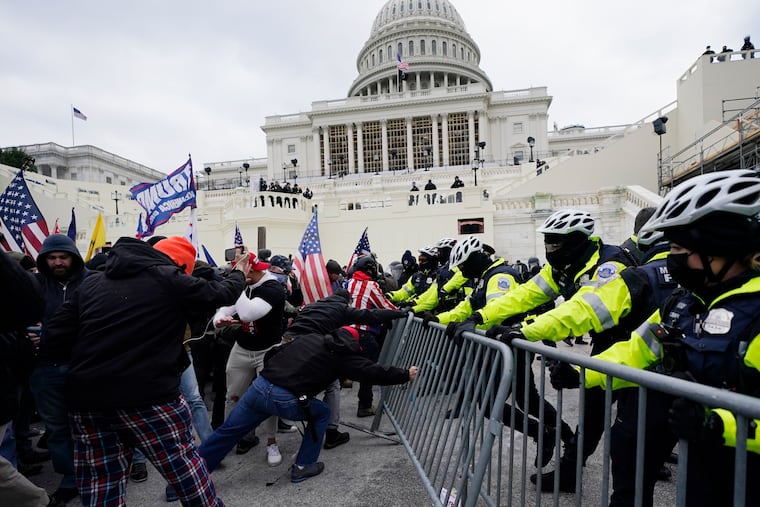Senate panels call former Capitol Police chief to testify about siege
Two Senate committees will meet next week to begin a broad examination of the security failures that led to the vast breach.

WASHINGTON — The Senate has announced its first hearings to examine the Jan. 6 siege of the Capitol, calling in the former chief of Capitol Police and the former heads of security for the House and Senate, all three of whom resigned immediately after the attack.
Two Senate committees will meet next week to begin a broad examination of the security failures that led to the vast breach, in which five people died. In addition to the Feb. 23 hearing, the two committees are pressing for information from almost two dozen agencies and departments about the response.
The Senate Homeland Security and Governmental Affairs Committee and the Senate Rules Committee announced Tuesday that they had invited former Capitol Police Chief Steven Sund, former Senate Sergeant at Arms Michael Stenger and former House Sergeant at Arms Paul Irving to the hearing, along with Robert Contee, the chief of the Metropolitan Police Department.
The security breakdown that day, as the House and Senate met for a joint session to count electoral votes, was severe. The Capitol Police had planned for a free speech demonstration, not a violent insurrection by supporters of former President Donald Trump to overturn the election.
With a diminished security presence, the rioters not only breached the Capitol but entered the Senate chamber minutes after senators had fled and tried to break through the doors of the House chamber with lawmakers still inside. Outside, they engaged in hand-to-hand combat with an outnumbered, ill-prepared Capitol Police force, eventually assisted by D.C. police.
» READ MORE: Mississippi congressman sues Trump over his role in the Capitol riot
The acting chief of the Capitol Police, Yogananda Pittman, has acknowledged the department knew before Jan. 6 that extremists and white supremacists could be in the crowd outside the Capitol, but she and other leaders are still pointing fingers about who was responsible for not bolstering security.
In the aftermath, tall fences and barbed wire now surround the Capitol, cutting off streets and laying out a wide perimeter. Thousands of National Guard troops line the fences and protect the halls.
The hearing was announced by Senate Homeland Chairman Gary Peters, D-Mich.; the Homeland panel’s top Republican, Ohio Sen. Rob Portman; Senate Rules Committee Chairwoman Amy Klobuchar, D-Minn., and the top Republican on the Rules panel, Missouri Sen. Roy Blunt.
The Senate announcement comes after House Speaker Nancy Pelosi said Monday that the House will move to establish an independent, Sept. 11-style commission to look into the insurrection. Legislation to set up the commission could be introduced as soon as this week, according to a person familiar with the process. The person was granted anonymity to discuss the planning.
Pelosi said the commission will “investigate and report on the facts and causes" relating to the attack and "the interference with the peaceful transfer of power.”
At the White House, press secretary Jen Psaki said President Joe Biden supports the formation of a commission. Biden “backs efforts to shed additional light on the facts to ensure something like that never happens again,” she said.
In a letter to Democratic colleagues, Pelosi said the House will also put forth supplemental spending to boost security at the Capitol.
Other investigations are also planned. Pelosi, D-Calif., asked retired Army Lt. Gen. Russel Honoré to lead an immediate review of the Capitol’s security process, and several other committees are looking into different aspects of the insurrection.
In her letter, Pelosi said, “It is clear from his findings and from the impeachment trial that we must get to the truth of how this happened.”
Associated Press writers Josh Boak and Michael Balsamo contributed to this report.